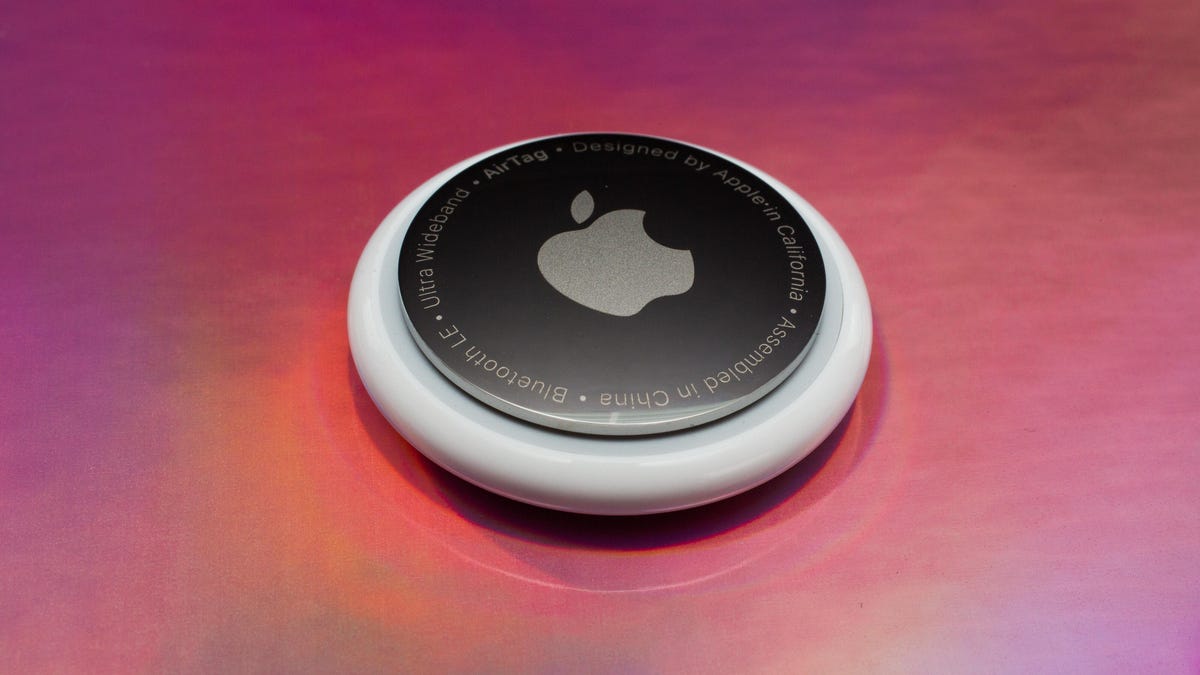Ahead of WWDC, Apple bolsters AirTags privacy measures, says it's developing Android detector app
Apple is upping its privacy efforts with AirTags about a month after they hit the market, and before WWDC, its biggest developer event of the year.

The new AirTag sensors have raised privacy concerns, which Apple is hoping to address.
Apple is adjusting its approach to its AirTags sensors, changing the time they play an audible alert when separated from their owner. The company is also creating new ways to warn people if an unexpected AirTag or Find My network-enabled device is nearby.
The tech giant said Thursday that it's begun sending out updates to its AirTags, changing the window of time they'll make noises when potentially being used to track another person. Initially, the Apple device would play in three days. Now it'll begin to play at a random time inside a window that lasts between 8 and 24 hours.
To further reassure people about its AirTags, Apple said it's developing an app for Android devices that will help people "detect" an AirTag or Find My network-enabled device that may also be unsuspectedly "traveling" with them. Apple iPhones already have a similar alert system built into their devices. The Android app will be released later this year.
"The recent introduction of AirTag included industry-first proactive features that discourage unwanted tracking," Apple said in a statement. The company added that its moves, which come a week before its online Worldwide Developers Conference event, represent a continued commitment to improve AirTags privacy and security.
Apple's updates for its AirTags come a little over a month after they went on sale for $29 apiece, or $99 for a four-pack. The devices were initially pitched as an easy way to find lost keys, book bags and other objects using Apple's Find My network technology. The AirTags use a combination of onboard sensors and wireless signals to help owners identify where their item is, pinpointing location by emitting a sound from the tracker and showing compass-like direction arrows on an app on their phone.
See also
Shortly after AirTags were released, however, privacy advocates raised concerns the devices could be used as a way to stalk people. Unlike other tracking devices sold by competitors such as Tile and Samsung , Apple's AirTags benefit from the company's Find My network, with over 1 billion active iPhones and other Apple devices quietly communicating and sharing the location of any AirTags nearby. And The Washington Post reported in May that although Apple's privacy features are stronger than competitors, its testing found that those protections may not be enough to protect unwitting victims.
Apple's AirTags are designed to work with the company's Find My network, powered by iPhones, iPads and Mac computers.
Apple believes it's creating a deterrent to abuse by adjusting the amount of time before an AirTag alerts a nonowner to its presence, effectively introducing uncertainty to how they will work. The company's also already built in warnings into iPhones to alert people about AirTags traveling with them that they may not be aware of. And the unique identifying codes for each AirTag are frequently changed, and their communication is encrypted, which Apple says deters hacking and other unintended tracking efforts.
If someone finds an unwanted AirTag traveling with them, they can tap it with an iPhone or other near-field communication-capable phone to receive instructions on how to disabled the AirTag.
Apple said its updates for AirTags began Thursday, and will be automatically applied when in range of an iPhone. The company declined to provide more details about its upcoming AirTags and Find My accessory detection app for Android, saying it'll share more details later this year.

